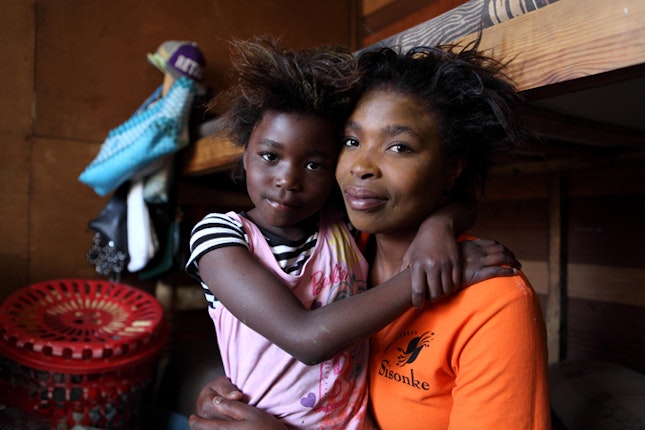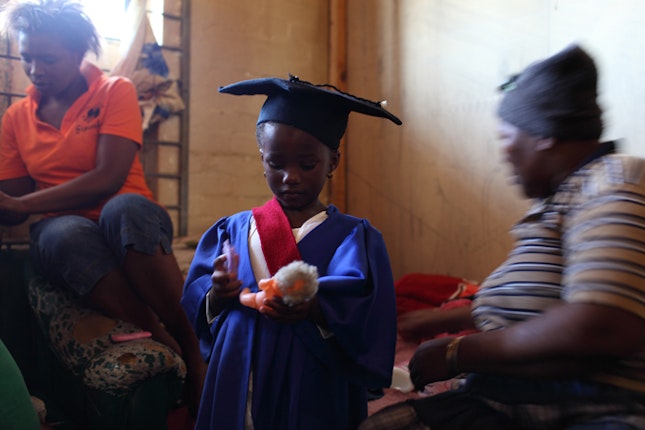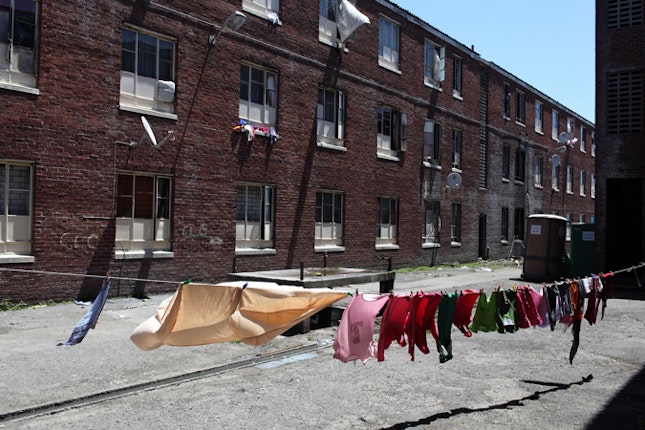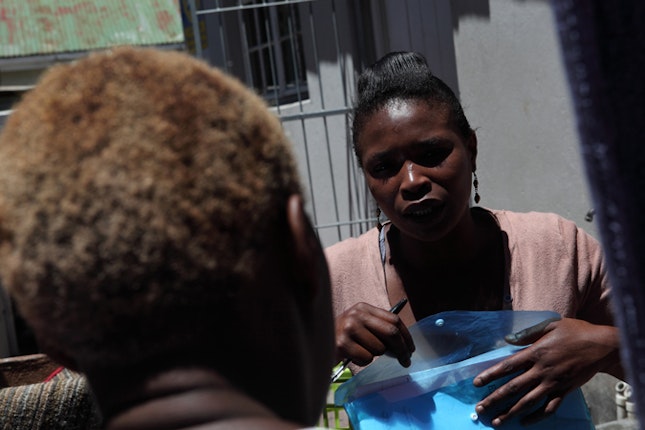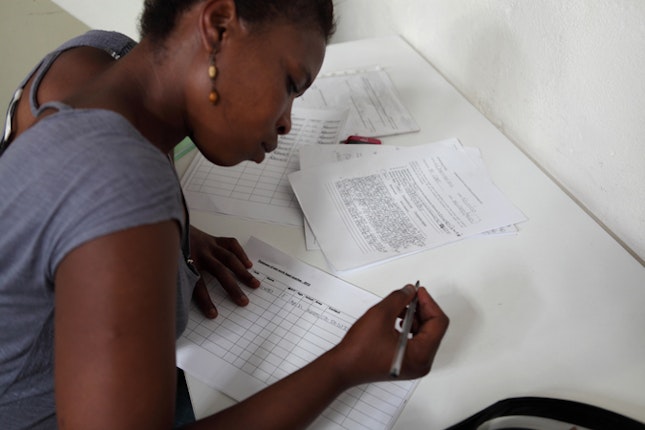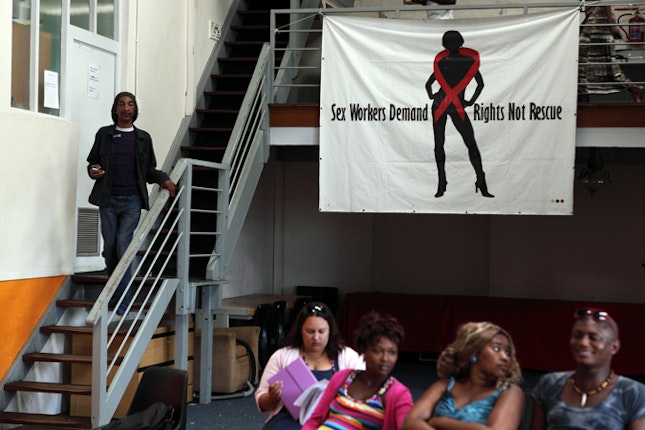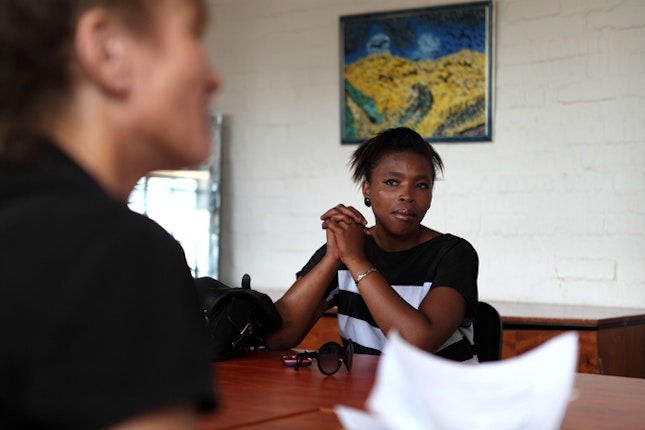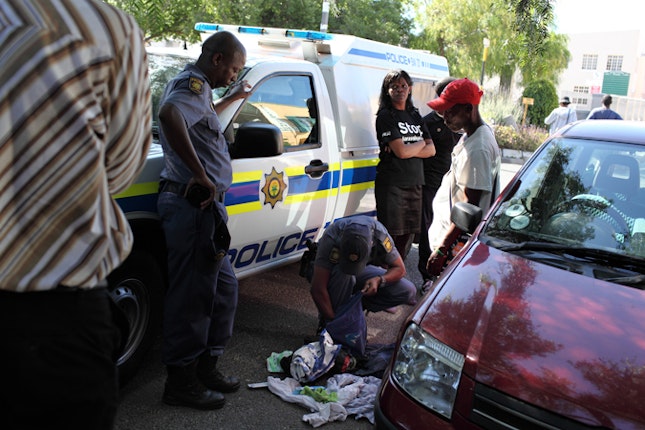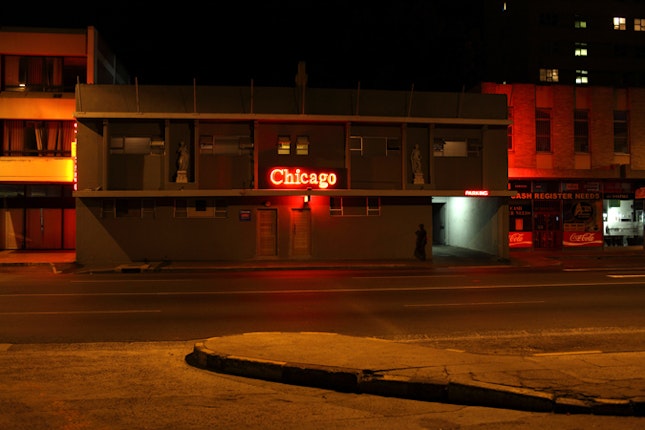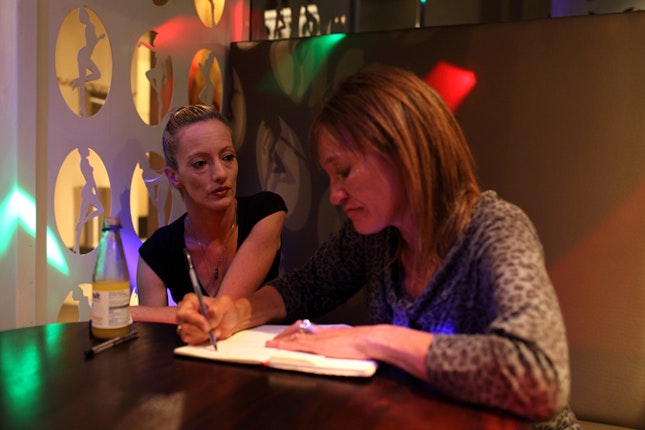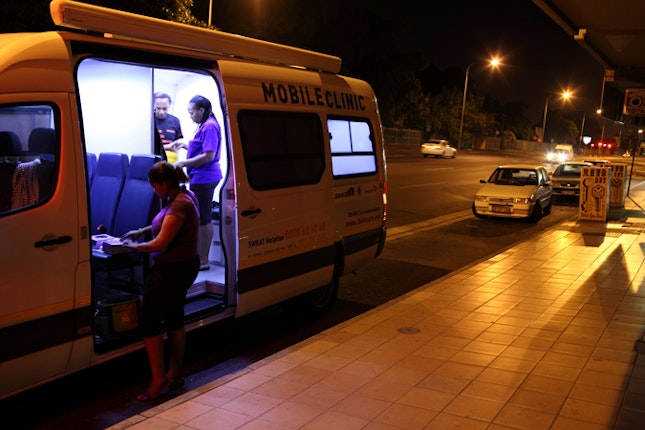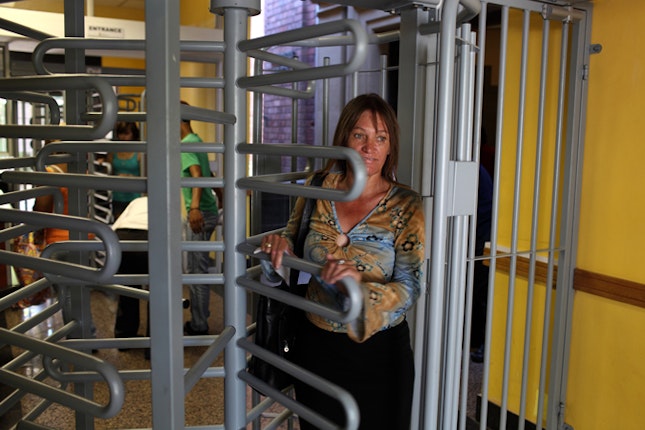Legal Help for Sex Workers—from Sex Workers
By David Scamell
I grew up with my granny and aunt and we stayed in a four room house with four of my cousins. When my granny passed away, my mother took me to her hostel where she had a room. It was not a nice place for children to grow up. When I was in grade ten my father said he wouldn’t pay for another year and I should just stay at home. My mother started getting sick and my father didn’t want to support us. My friends told me I could make money in town, so I started going to town to do sex work.
It is a great privilege to be able to help others as a paralegal. Other sex workers never even knew that there is a Bill of Rights in our Constitution but now they practice those rights because of the WLC.
—Ncumisa, Women’s Legal Centre paralegal
The Women’s Legal Centre (WLC) is a grantee of the Open Society Foundations based in Cape Town, South Africa that provides legal services for sex workers in collaboration with sex worker organizations. Sex work is criminalized in South Africa and sex workers face routine harassment, intimidation, and even abuse from police. Police use municipal laws against loitering, solicitation, and drunken behavior to threaten, arrest, or detain sex workers for days at a time. And many are released only after paying large fines. Police use these tactics, in large measure, because convictions for sex work are difficult to achieve. Few clients want to risk self-incrimination by testifying.
The centre began its outreach by offering weekly group workshops on human rights to sex workers. It soon expanded, employing four former and current sex workers as paralegals. The benefits of peer-based legal assistance are clear, says a paralegal named Ncumisa. “We know the industry. It is easy to communicate freely without fear of being stigmatized since we share similar experiences in their line of duty.” Anita, another paralegal, agrees. “It is very important because we understand the difficulties and obstacles that sex workers encounter on a daily basis,” she says. “We personally know how violent police can be towards sex workers, so we can offer advice.”
To do community outreach, Women’s Legal Centre paralegals partner with a counseling and advocacy organization called Sex Worker Education and Advocacy Taskforce. They provide male, female, and transgender sex workers with legal information and advice, and assist with court hearings, bail applications, and filing complaints about police abuse. “For two weeks we do day and night outreach where we find them in the hot spots. Then weekday mornings for two weeks we do follow-ups. We give legal advice, and help them with protection orders and lodging complaints to the Independent Police Investigative Directorate. And we do a 24 hour helpline,” says Ncumisa.
“My favorite part is motivating and helping sex workers to contest their fines for something that we believe it is work—not crime,” Ncumisa explains. “I love the expression on their faces when we get them out of jail, seeing how happy and trusting they are.” Her colleague Anita agrees, adding “I know what it feels like to be wrongfully accused and charged. So it feels great to be of help in the community.”
There wasn’t enough money to feed everyone in my family so I found a job in a factory. While I had that job, an older friend told me about what she did to make money. She said sex work was like a normal job because you can do it during the day, and that your family wouldn’t know. I started doing sex work at age 18. I found that doing sex work was better because I felt good when I could put food on the table and make sure nobody goes hungry.
When I got my job as a paralegal I was over the moon because I am doing something good. I enjoy my work at WLC because it is something I have a passion for. Working as a paralegal has given me more insight into how the police really have no respect for us sex workers. I see how different the police act when there is a paralegal around. They are more respectful.
—Gaironessa, Women’s Legal Centre paralegal
Please visit Women’s Legal Centre online to find out more, including how you can support their work.
Until June 2014, David Scamell was a program officer for the Sexual Health and Rights Project of the Public Health Program.
